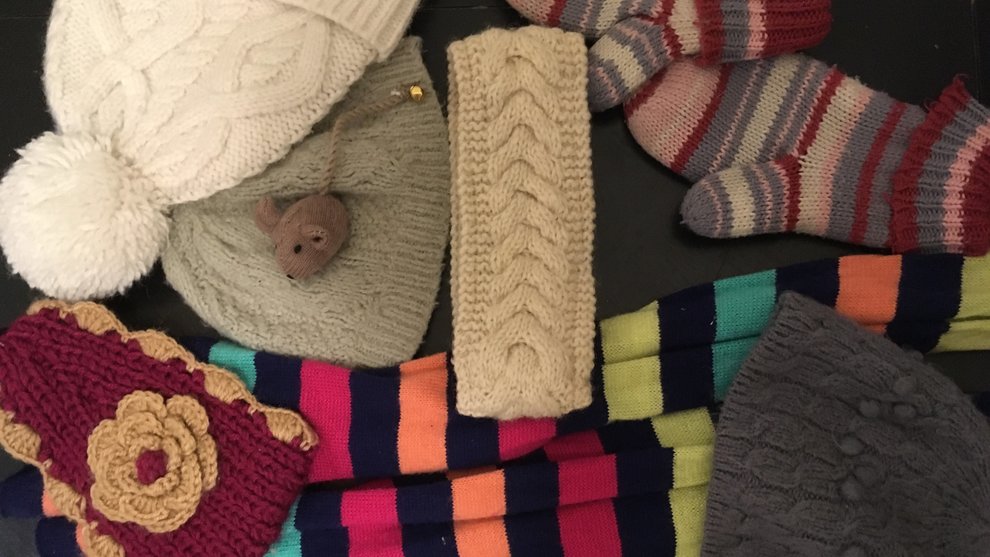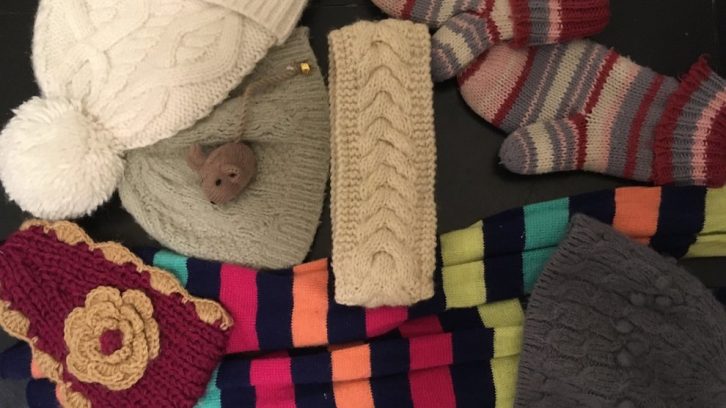community
Local knitters donate time, skills to help others
Website connects knitters with groups in need

caption
Donated knit items of all kinds are being accepted across HRM this winter.
caption
Donated knit items of all kinds are being accepted across HRM this winter.Every winter volunteers across Halifax donate hundreds of hats, gloves and scarves to shelters, hospitals and schools.
Olha Khaperska runs the Halifax Charity Knitters website, a directory of organizations accepting knit donations across the city. It’s a one-woman operation.
“It was hard to find this information when I first moved here, and that was the origins of the project,” said Khaperska. “If you want to donate locally, who do you contact? Where do you find the information? How do you know what is needed and when? What yarn should it be made out of?” Related stories
The site lists several organizations and the items they need. The IWK Health Centre has multiple listings.
“They have the purple hats project to prevent shaken baby syndrome, a very important project,” said Khaperska. The IWK also asks for knit finger puppets, dolls and blankets to put in the sets they give to newborns.
Other organizations that accept knitted items include Out of the Cold, Metro Shelter, the Mission to Seafarers and Phoenix Youth, or “any of the organizations that help people who find themselves in trying circumstances that might spend some time outside,” Khaperska said.
Even knitting “mishaps” are useful to places like animal shelters, which accept blankets and knit mice toys for cats, which they stuff.
“It doesn’t have to be beautiful, but the dog or animal has something soft to rest on,” Khaperska said.
Metro Turning Point is one of the places listed on the Halifax Knitters website. Linda Wilson, executive director of Shelter Nova Scotia, which runs the group, said the Barrington Street men’s shelter arranges with community groups to receive donations of knit hats, scarves and gloves, and should be getting this year’s donation soon.
“They need them (gloves) as much as you and I,” said Wilson, “and they certainly can’t afford to buy them for themselves. In order to go for job interviews or to their appointments in the winter, it’s nice they have them.”
People are more generous during the winter, Wilson noted.
“People are really grateful for what they have at Christmas time and they think of the poor,” she said. “We usually get a lot at Christmas time, but what happens is around May or so, all that runs out.”
Although there is always a need for knitted donations, Khaperska pointed out that quality is still important, not just quantity.
“You just want to do your best, treat it as if it’s for your family, for you, not just someone else,” she said.
A knitter herself, Khaperska suspects there’s a wide range of knitters in the community who are helping out, but “senior residence houses are getting a lot of (yarn) donations. There might be some old ladies that spend the majority of their time knitting.”
About the author

Victoria Walton
A 4th year journalism (BJH) student at the University of King's College, Halifax. Combined honours with International Development Studies. Interested...
